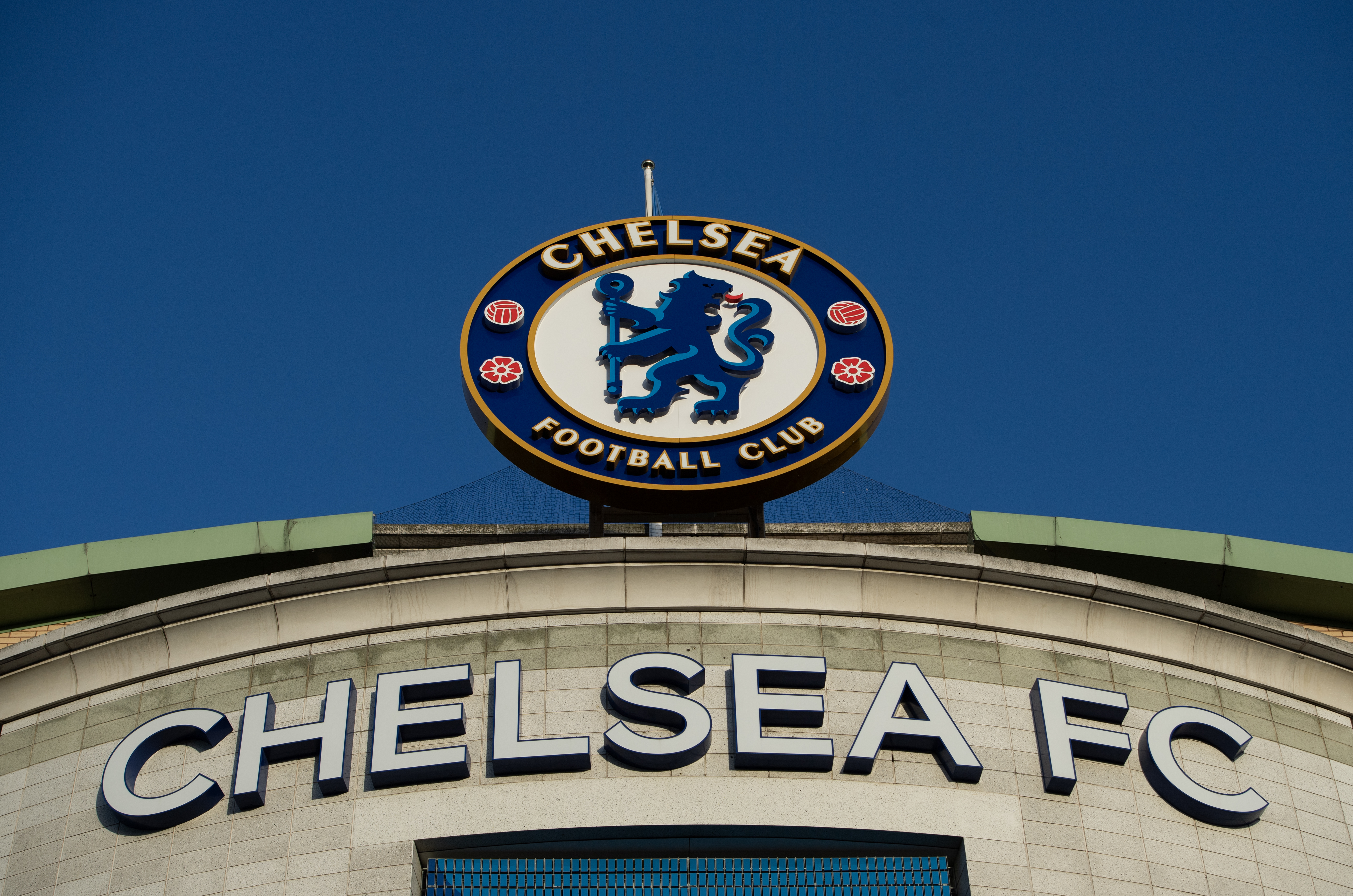Nadia Nadim exclusive: “My father was killed by the Taliban… now I want to help people believe the world can change”
Nadia Nadim was forced to flee Afghanistan as a child, before finding asylum – and football – in Denmark. Now, nearing her 100th cap and a newly qualified doctor, the forward takes FFT through her incredible story
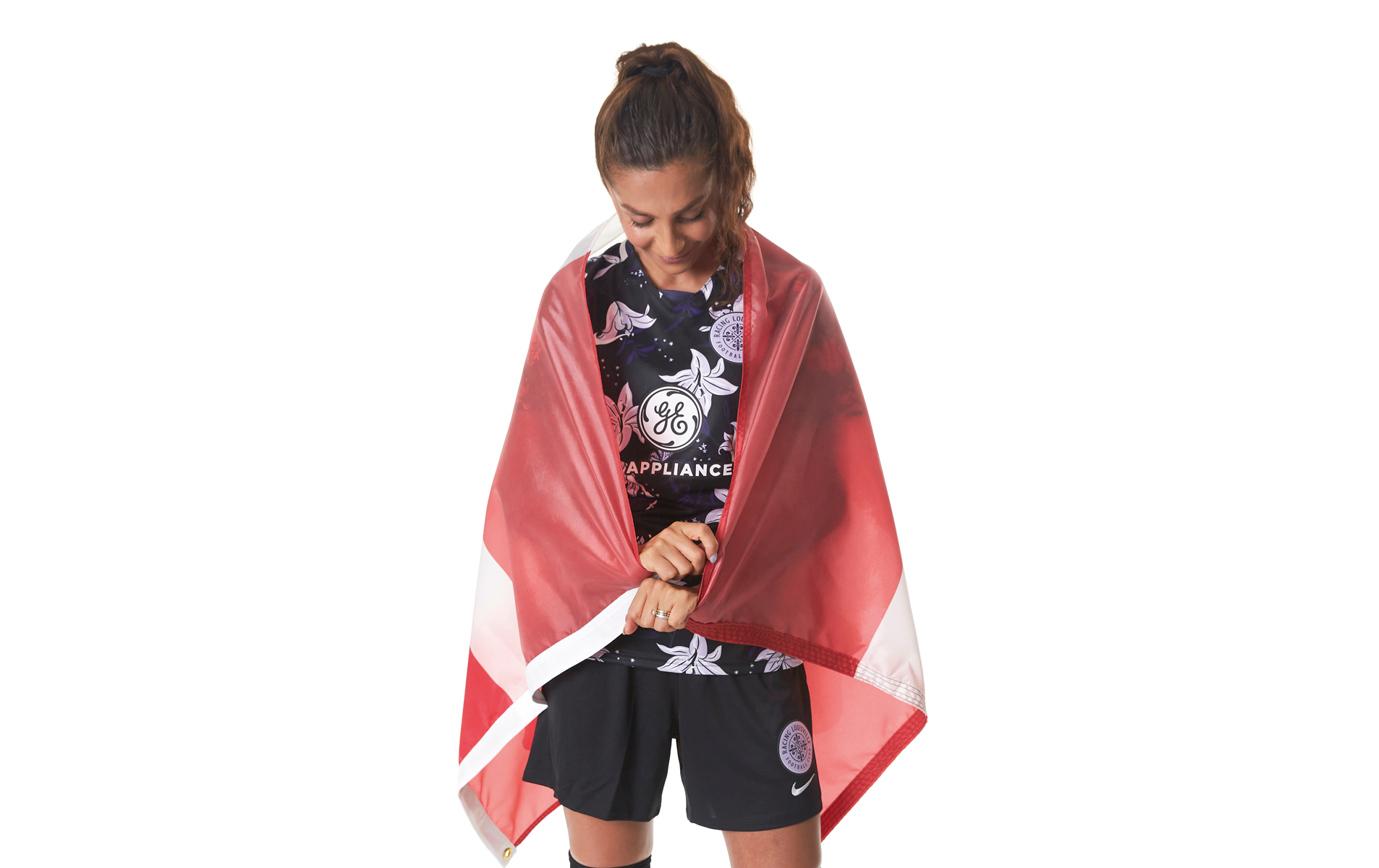
This piece on Women's Euro 2022 star Nadia Nadim was originally published in FourFourTwo magazine. Subscribe now!
I always describe my childhood as being split into two parts. The first part was before the war. Until that time, I’d lived a safe and peaceful life with my family in Kabul, the capital of Afghanistan. I was one of five sisters and we were all little balls of energy. We went to school and had many friends in the city – everything was normal.
My mother worked as a teacher and my father served as a general in the Afghanistan National Army. To me, my father was like James Bond. He was this big, intelligent guy – handsome and proud. I used to wake up really early for school and watch him as he went through his exercises out on the balcony every morning.
We lived in a massive apartment building, which was part of a complex designed to house the army’s generals and other high-ranking officials – even the president’s mother stayed there sometimes. It was very difficult to get in and out, with checkpoints ensuring that strangers couldn’t just wander in off the street. It felt like the safest place in the world to me.
But that was about to change. The second part of my childhood, after the war started and the Taliban rose to power, couldn’t have been more different. I went from a normal childhood to one of utter chaos and fear. We stopped going to school, stopped seeing our friends, and because of my father’s job, our family was thrust into danger. He grew more and more distant during the war – less like a dad and more like a general.
I remember once, when we were at home in our apartment, my mum told us girls that we had to leave immediately because the city was being attacked by the Taliban. Out on the streets, people were fighting, there were bodies on the floor and my mum told us not to let go of each other’s hands. I can remember that sheer terror as if it happened yesterday.
My father was eventually killed by the Taliban in 2000, when he was 37. I still have trouble coming to terms with it. It’s like, somehow, I don’t believe he’s actually gone. I’ll be driving my car or walking in a shopping centre and think I see his face. Then I come to my senses and realise it isn’t really him – it can’t possibly be. Years later, I heard that this is a natural phenomenon for people who have been through a painful experience at a very young age.
The best features, fun and footballing quizzes, straight to your inbox every week.
My mum didn’t have any time to grieve or wonder what we were going to do without him. She was young and alone with five girls to protect in an extremely dangerous country. To this day, my sisters and I still don’t really know how she did it, but my mum arranged for traffickers to help us escape through the border to Pakistan. Once there, the traffickers had to find passports that resembled us so we could fly to a safer country. It took weeks, with my mum refusing several offers to have us split up and sent to different destinations. She was adament that we all stay together, no matter how long it took.
After weeks of waiting, we were told that we would be travelling to London, via Italy – all five of us. It was the first time any of us had been on a plane before and I can still remember, aged 11, being given some free chocolate by the stewardess. After landing, we were hurried into the back of a truck and told to stay completely quiet while we made our way to England. After days of nervously sitting in the back of that truck, we arrived.
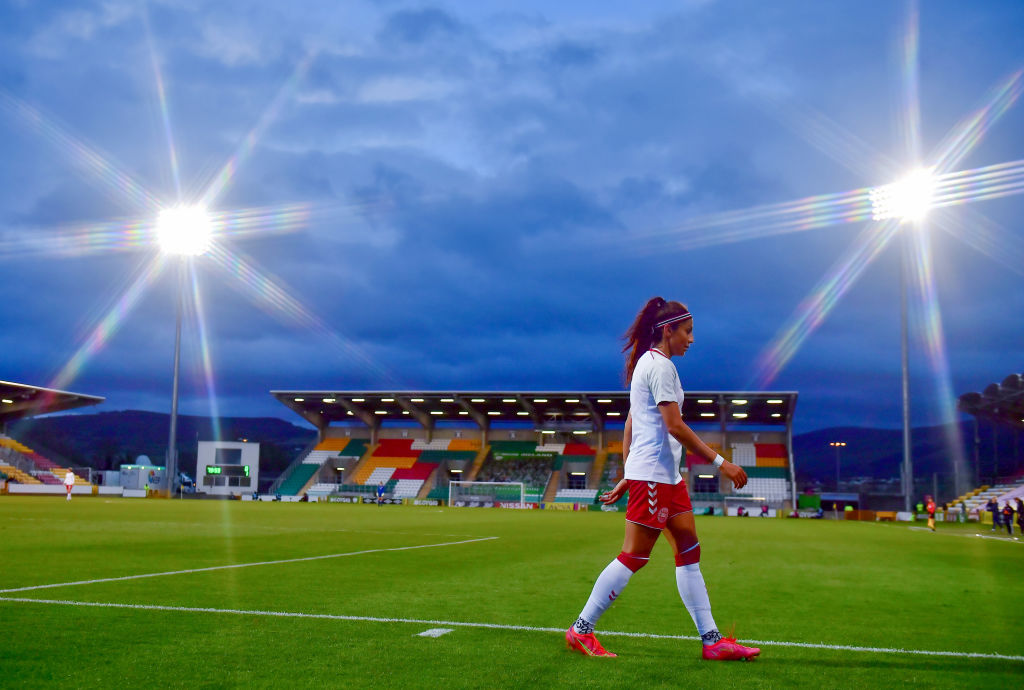
I remember stepping outside expecting to see Big Ben, and being surprised to discover nothing but trees.
We hadn’t travelled to London at all – we were in Denmark. It’s probably a little odd for people to hear this, but the refugee camp we were taken to was one of the happiest periods in my life. While my mother worried about what would happen to us next, my sisters and I attended school, learned to speak Danish and made friends with the other children in the camp. Us girls would run around all evening playing games until our mum called us to bed. We’d gone from living in fear, hearing the sounds of bullets and bombs, to a place where we felt very safe. And, best of all, it was in that refugee camp where I experienced my first real taste of football.
One day, I stopped to notice a local girls’ team playing near the refugee camp. I saw them – 11 or 12 years old, like me – running around in beautiful kits while their manager yelled instructions from the touchline.
It was as if a lightning bolt struck me. From that moment on, I wanted to be a footballer. We sometimes kicked a ball around in the camp, but then I started playing religiously – I wanted to get good enough to join the girls’ team I’d seen. We’d have these huge kickabouts with loads of us chasing the ball around like crazy. I became friends with an Iraqi boy named Steve, and we’d often take it in turns to see how many times we could juggle the ball.
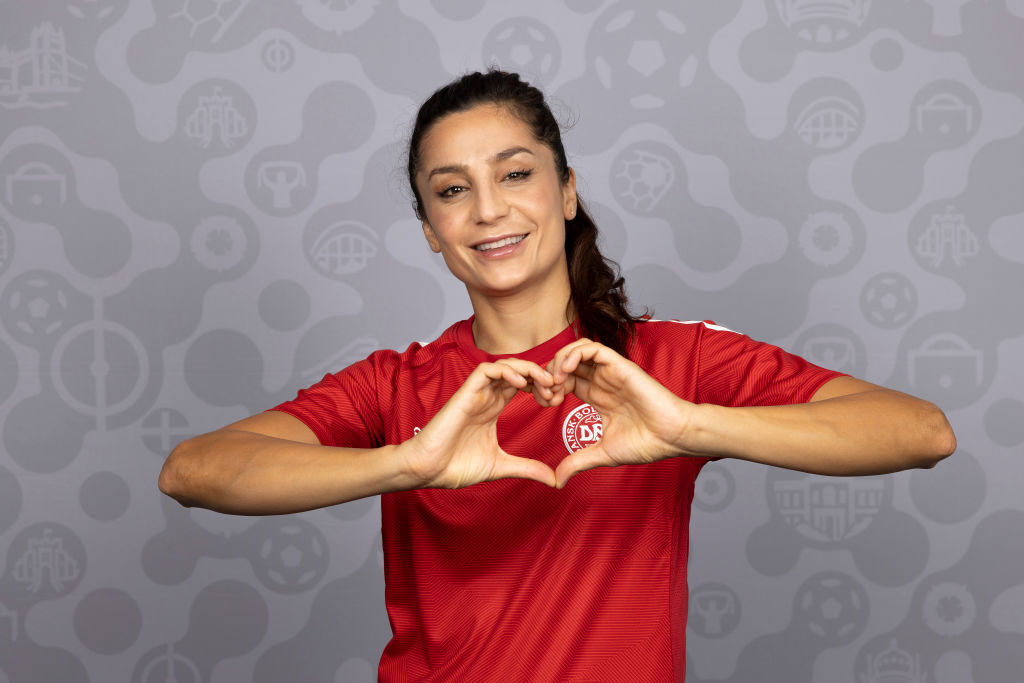
I quickly felt confident enough to ask the girls’ team if I could play. The manager was really friendly and told my sisters and I that we’d be more than welcome to take part in training. We went along for the next session and I just tried to copy the other girls. We did some shooting practice and afterwards the coach said I had some promise, so he invited me to come and play officially.
My first organised match felt incredible – I was beyond excited to pull on my jersey. The other girls had been getting coached all their lives and were more efficient and technical than me, but I’d been playing in the rough and tumble of the refugee camp. I was faster, tougher and more determined than them. I played in defence that day and never stopped running. That fighting spirit is still part of my game now. Wherever I’ve played, no matter the level, that little girl from the refugee camp is in there, trying to show everyone that she’s just as good as the other kids. That tenacity, that desire, will never leave me.
I came to the game relatively late, but my technique improved rapidly with coaching and people started speaking about me as a talented prospect. Playing football became my way of fitting in. It helped me to improve my Danish, make friends and feel accepted by my peers. After joining the sixth grade at a local Danish school, I played football at lunchtime with the boys every day. They were accepting and even some of the girls started to join in after a while.
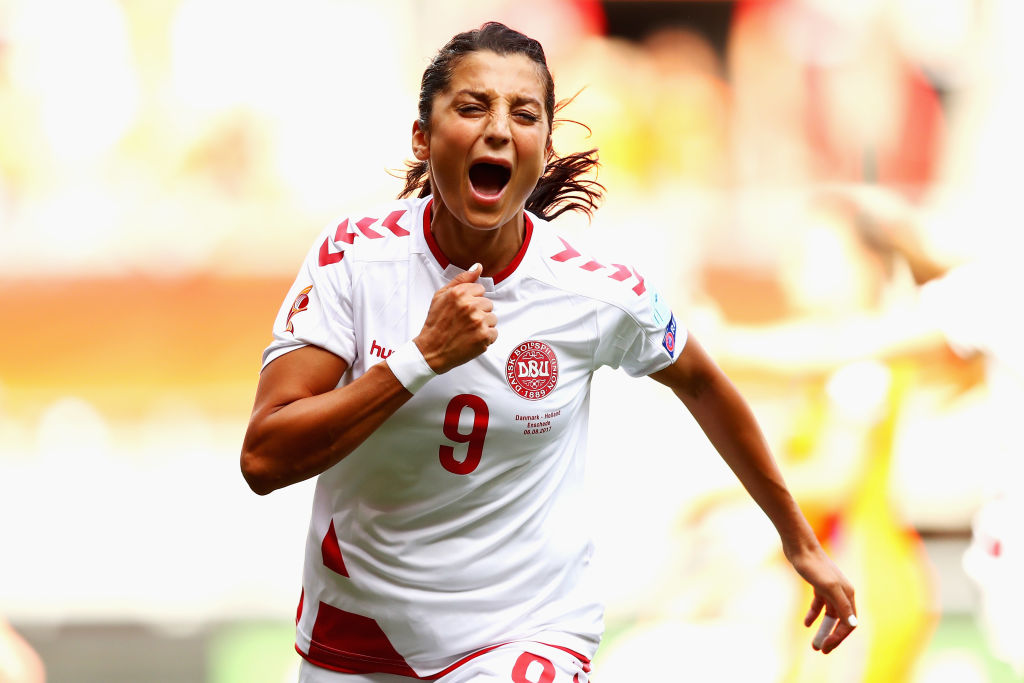
Of course, in life there will always be a few assholes. Sometimes I was subjected to racist name-calling in the playground, and some of the boys would try to hurt me or tell me that a girl shouldn’t be playing football. But I was a tough kid who’d been through a lot of s**t. I wasn’t the type to back down or cry in the corner. I got into several fistfights back then.
Unfortunately, it wasn’t just the children who could be cruel. Dominating football matches meant I became a target. The parents would shout pretty awful things from the sidelines and some would instruct their daughters to try to kick me out of the match. I had a really short temper in my early teens. If I received abuse I’d think, ‘All right, you f**kers. I’ll show you!’ I’d snap, which occasionally ended with me getting sent off.
When I was around 15, I received the best piece of advice in my entire career. My coach said to me, ‘Nadia, if you need to shut people up, do it with your feet, not your fists. Never let people see that you’re angry’. That wasn’t too easy at first – sometimes I’d be so upset at half-time that I’d cry in the dressing room. Then I’d suck it up, go back out and smash a goal in. I channelled those emotions and took my game to another level.
I was soon considered one of the brightest young forwards in Danish football, and got signed by top-flight club Skovbakken. Despite still only being in my teens, I scored a lot of goals. It wasn’t very long before the Danish national team took notice of my exploits, and after being granted citizenship when I was 20, I was overwhelmed to get a call-up. Sadly, bureaucracy was standing between me and my ultimate dream.
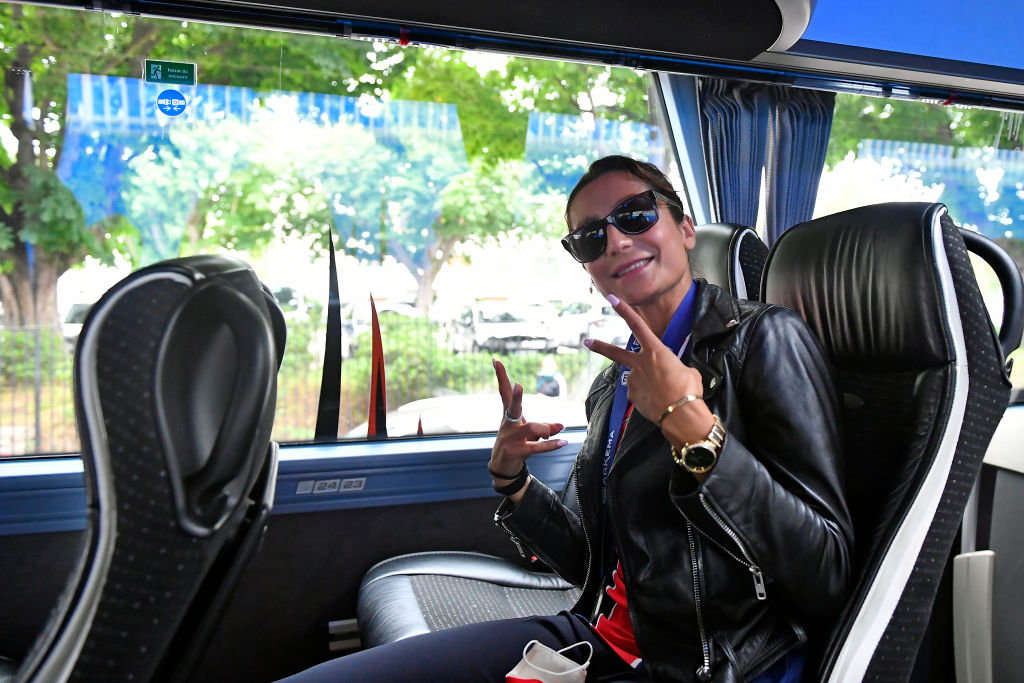
FIFA told us that I wasn’t allowed to play for Denmark because of a recent law change which said a player had to live in a country for five years after becoming a citizen there. The rule was designed to stop smaller nations recruiting young foreigners. But there’s a big difference between sneaking some Brazilians through the back door and giving a girl who grew up in a refugee camp an opportunity.
I was so annoyed. It didn’t make any sense – I’d been living in Denmark for nine years and only had Danish citizenship at the time.
I saw it as just another obstacle in my life – there always seemed to be another one and all I could do was remain calm and focused.
I kept performing for my club and eventually there was a breakthrough. Lawyers from the Danish FA successfully persuaded FIFA that mine was a special case and I was given the green light to play for Denmark.
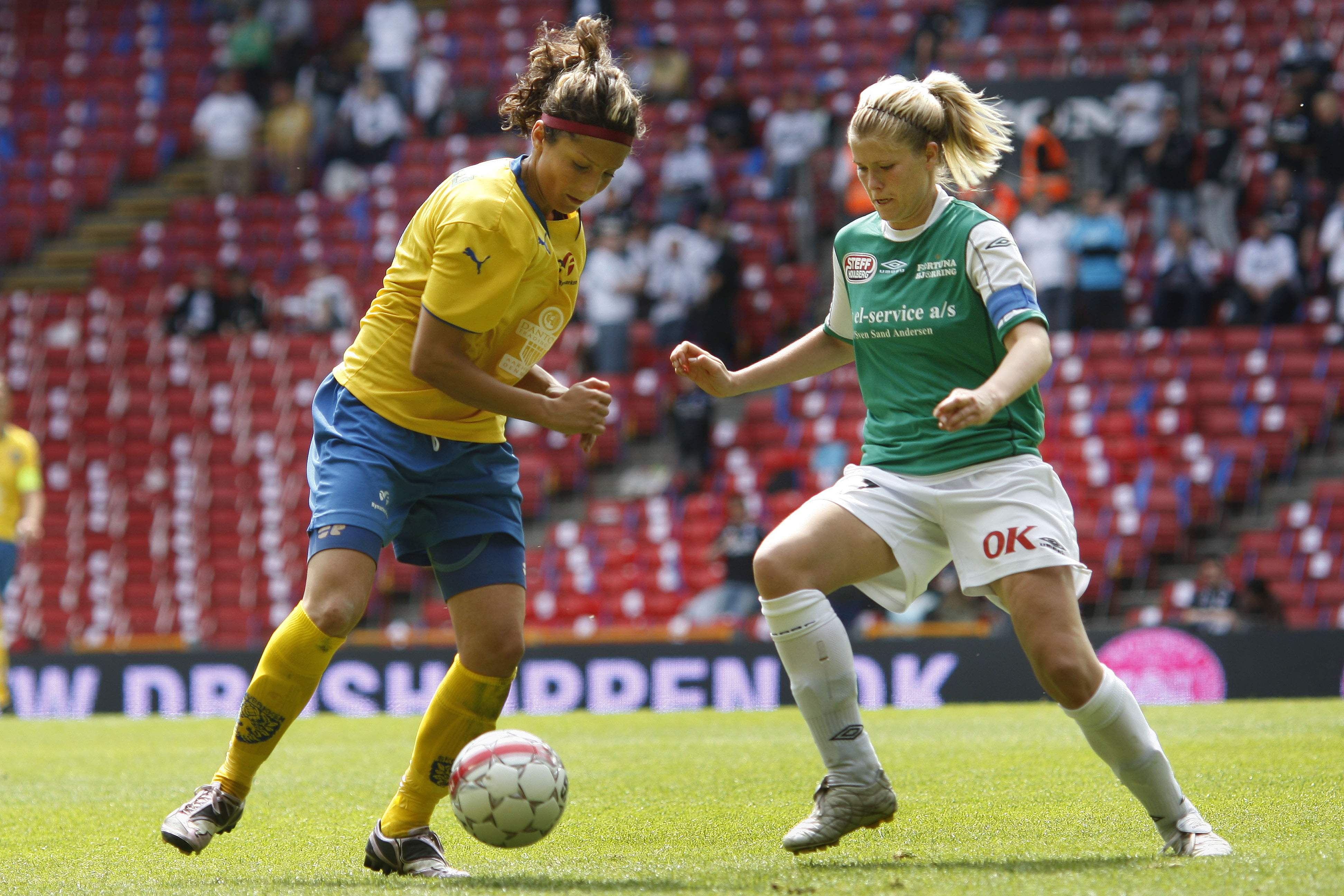
I made my debut against the USA in 2009, becoming the first naturalised Dane to play for either the men’s or women’s team. I was really proud to pull on that shirt; proud to be a Danish international who looked like me and played like me, with darker hair and skin. I thought of all the refugee kids growing up in strange countries around the world and dreaming of feeling accepted. This was my message to them: if I can do it, you can too. I was proud to open the door and let them know that there’s a spot for everyone if you believe in yourself.
I also thought about my father and what he would have made of his daughter playing for Denmark. He was such a proud Afghan, but I know he’d have been thrilled. I wasn’t the only daughter to become a sportswoman, either: my sister Diana is a boxer who’s won the Danish Championship seven times and the Scandinavian Championship on a couple of occasions. Knowing our father, he’d have probably claimed the sporting prowess was in his genes and taken the credit!
Apart from a few idiots, the reaction to my Denmark debut was very positive. People are still happy to see this Afghan refugee woman pull on the jersey 13 years, and almost 100 caps, later. Playing for Denmark means the world to me, and I was extremely proud to help the team reach the final of Euro 2017 in the Netherlands. I scored twice during the tournament, including one in our quarter- final victory over Germany, who hadn’t been knocked out of the competition since 1993, and another in our defeat to the Dutch in the final. It was crushing to lose that match, but my life experiences helped me to overcome major setbacks better than most. As I said, I’ve been through lots of s**t.
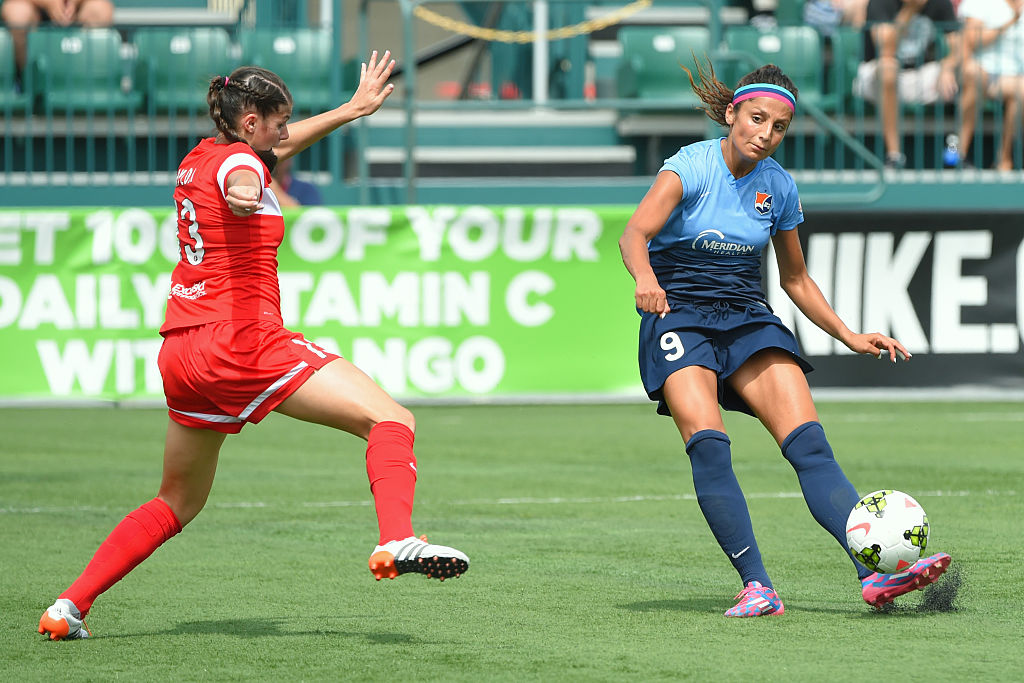
In 2014, I’d decided to leave Denmark and test myself against some of the best players in the world. I’d had opportunities to join big teams in Germany, England and America in the past, but it finally felt like the right time to make the move.
I left Fortuna Hjorring, a Champions League club, to play for Sky Blue FC in New Jersey on a one-year contract. Women’s football in the US was bigger, more popular and had better facilities. The fans appreciated my passionate playing style and I produced my best football. But my spell in the States wasn’t without its hiccups. After my deal with Sky Blue expired, I agreed to join the Portland Thorns. All the paperwork was sorted and I was preparing to relocate when Sky Blue alleged that I still had a year remaining on my contract. There was a massive dispute because I didn’t agree with them. I did eventually get my wish, but Portland had to buy me after the NWSL ruled in Sky Blue’s favour. It left a bad taste in my mouth for a long time.
Thankfully, the stress was worth it – I was Portland’s top scorer as we sealed the NWSL Shield in my first season. We then lifted the NWSL Championship title in my second year, beating North Carolina in the play-off final. I’d done what I’d set out to do: conquer one of the most competitive leagues in the world. Now it was time for a fresh challenge, but again it wasn’t a smooth ride.
The Women’s Super League in England had developed a reputation as one of the fastest-growing leagues in the game, and I was very excited to sign for Manchester City, one of its biggest clubs, in 2018. For some reason, the move didn’t work out.
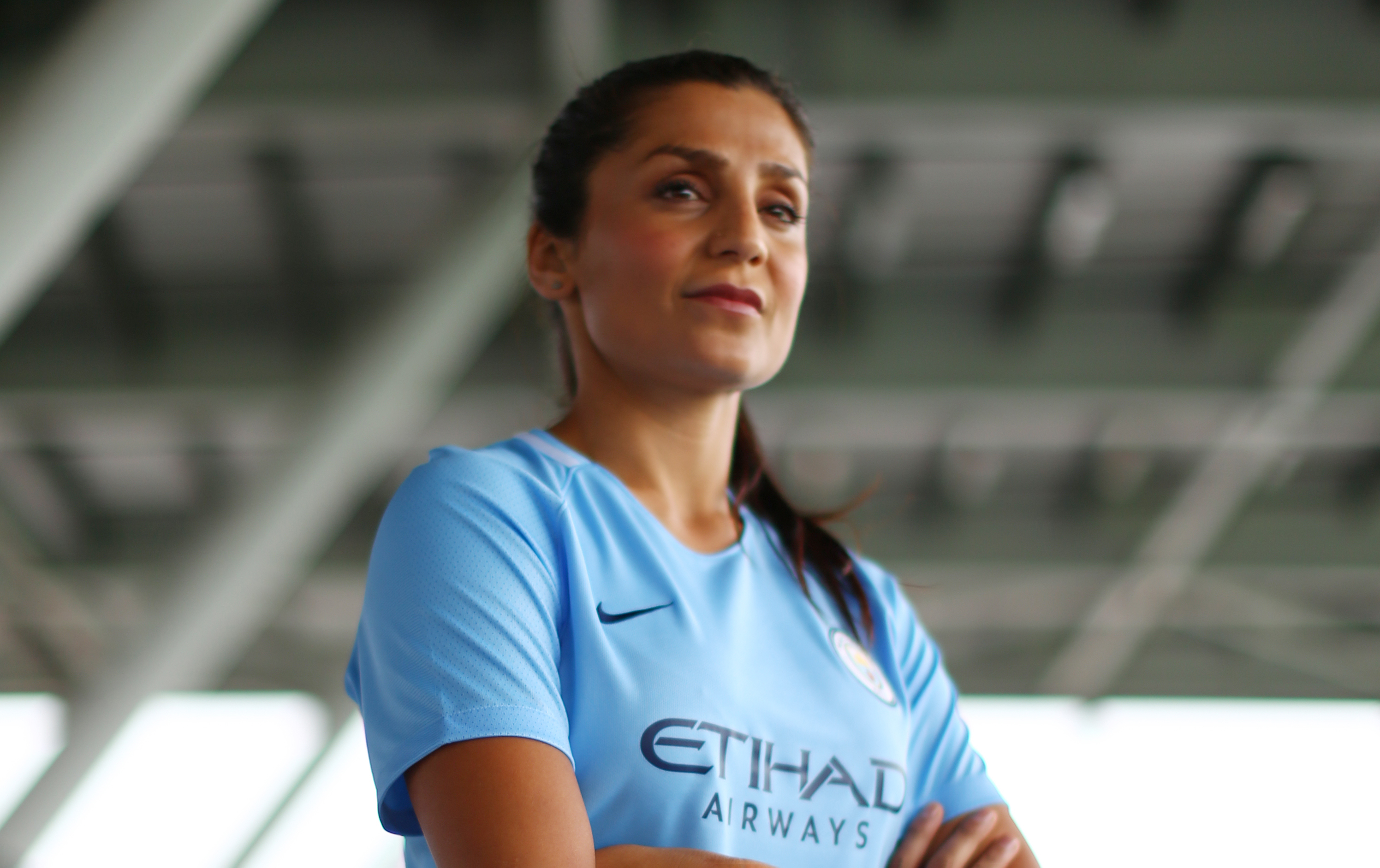
People might find this strange considering I lived in Denmark, but there was something about the weather in Manchester that I didn’t acclimatise to. I just didn’t feel at home there. I compare my time at City to seeing a dress in a shop window that you really like – you’re convinced it’s going to be perfect so you buy it and take it home, but when you try it on something doesn’t feel quite right. I wasn’t producing my best football on the field and left after one season.
Thankfully, Paris Saint-Germain made me an offer I simply couldn’t refuse. The coach rang me and said, ‘Nadia, we want to win the league and we think you can help us do that’. I knew how difficult it would be – Lyon are the most dominant women’s team in the world and have the best players. However,
I accepted PSG’s offer because I loved their ambition. I also knew that football matches aren’t settled by talent alone. When you play at the highest level, there isn’t much that separates players technically. It’s mentality that makes the final difference.
I count winning the French title in 2021 as my greatest achievement in club football, given the magnitude of beating Lyon. I’m not the sort of person to dwell on my journey but I distinctly remember, after we were crowned champions, going down the Champs-Elysees and seeing my photograph draped across the Nike store. I couldn’t help but think I’d done something special. To have come from a war-torn country and grown up in a refugee camp, to being a French champion, was incredible.
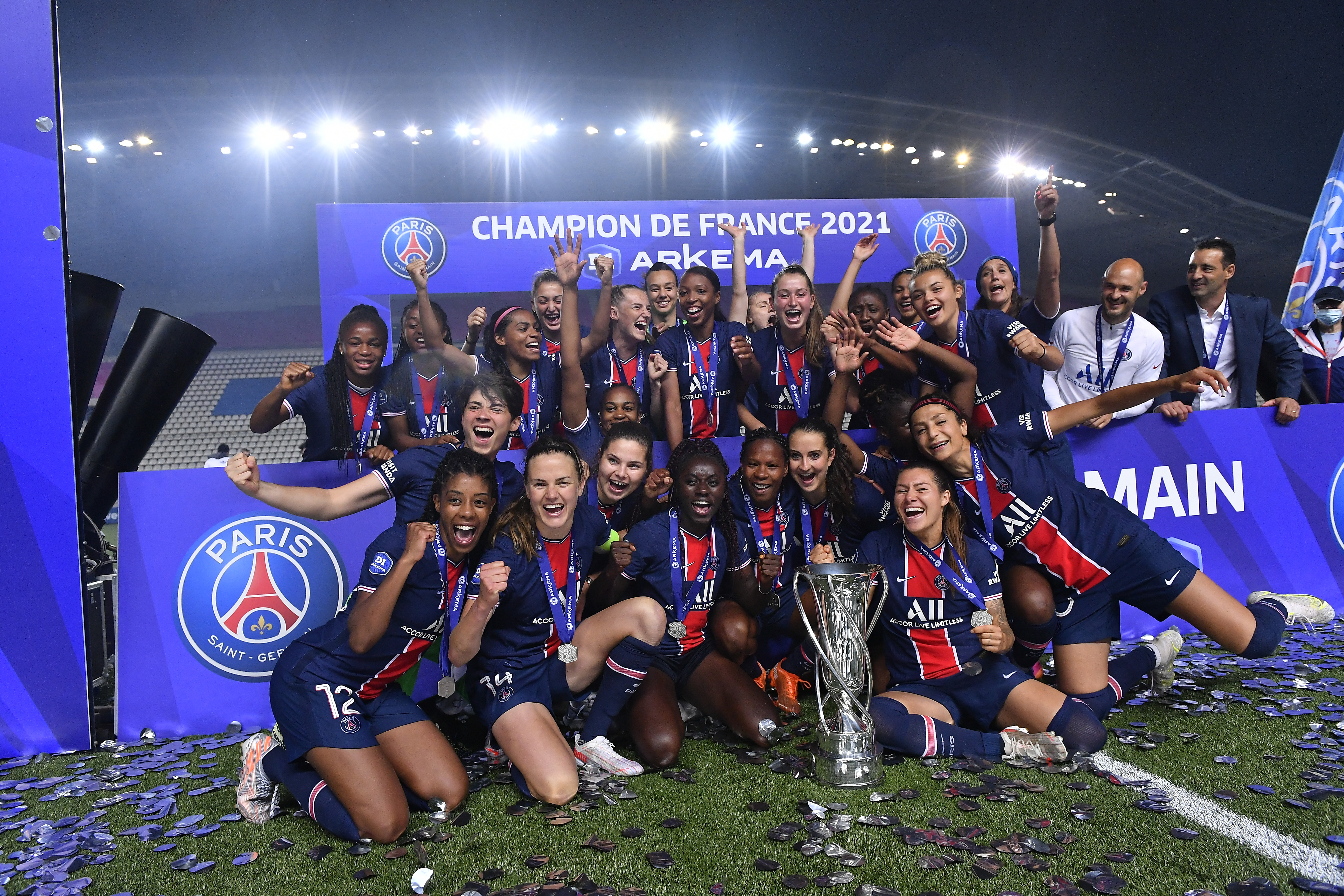
People were surprised when I left PSG, but anyone who knows me will tell you that I’m always looking for my next challenge. Racing Louisville offered me that. When I signed last year they were still a new team, getting ready for only their third season, and wanted me to come and add experience. During our conversations, they spoke about creating a winning mentality. I said, ‘This sounds like a sick opportunity – sign me up!’ I couldn’t wait to help turn the club into a power in the NWSL. As we all know by now, though, things are never plain sailing with me.
We were playing Orlando in September and I wasn’t happy. I felt I’d not been given the protection I needed from the officials in the early stages of the match. I’d been on the receiving end of three rough challenges already and it was clear that the opposition players didn’t want me to get on the ball.
I like it when games are edgy and I’m up for a battle, but that was too much. I made my feelings clear but nothing changed.
I remember receiving the ball in the middle of the field and trying to spin. All my weight was on my right leg as I turned and then felt someone come straight through the back of me. My body went one way, my knee went the other and I heard this dreadful popping sound. The pain was so extreme I thought I was going to pass out. My mind instantly flashed to the Euros in England this summer and how devastated I’d be to miss out. As I was carried off the field on a stretcher, it’s all I could think about.
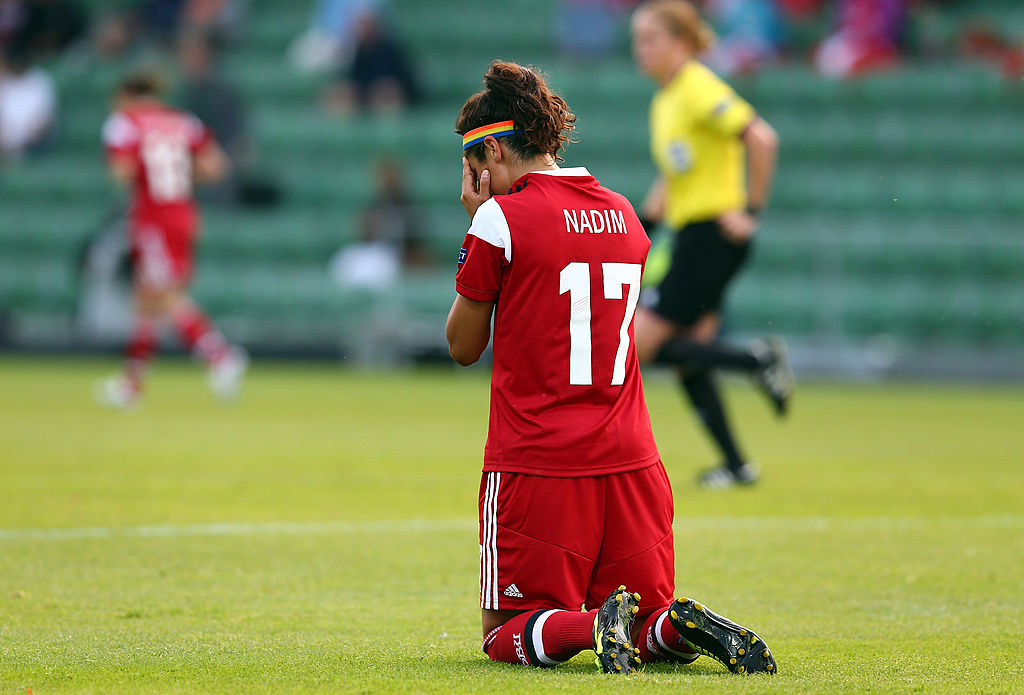
For several weeks, I allowed myself to feel heartbroken. I ate ice cream, cried and kept wondering why this had to happen to me. But then I snapped out of it. I said, ‘No more moping around, Nadia – it’s time to own this!’ I flew out to see a top surgeon in
Dubai and got my knee fixed by the best in the business. I had to give myself a shot at playing in the Euros. Louisville were hugely supportive but the NWSL tried to block me from going abroad to receive treatment. A row started, but ultimately I got my wish – it was my f**king knee, after all!
Since my ACL operation, featuring at Euro 2022 has been my sole focus. To earn my 100th cap at the tournament has been my biggest dream. The only thing that would top that feeling would be lifting the trophy at Wembley in July. Recently, that’s all I’ve thought about. After the Euros, I’ll allow myself to look ahead. I’m now 34, an age when many players consider retirement. I’m not in that place yet, but I’m fully prepared for when the day comes.
Over the past six years, I’ve juggled playing professional football with studying medicine. It’s been tough – my life has essentially been ‘sleep, study, train, repeat’ for a long time – but it’s been worth it. For part of my degree
I worked in a hospital, assisting surgeons in the operating theatre. I played football during the day, then found myself helping doctors perform surgery at night, while aching from head to toe. It’s been exhilarating and, just like always, I want to be the best. One of my sisters is also a doctor, with two more nurses in the family. It must be in my blood.
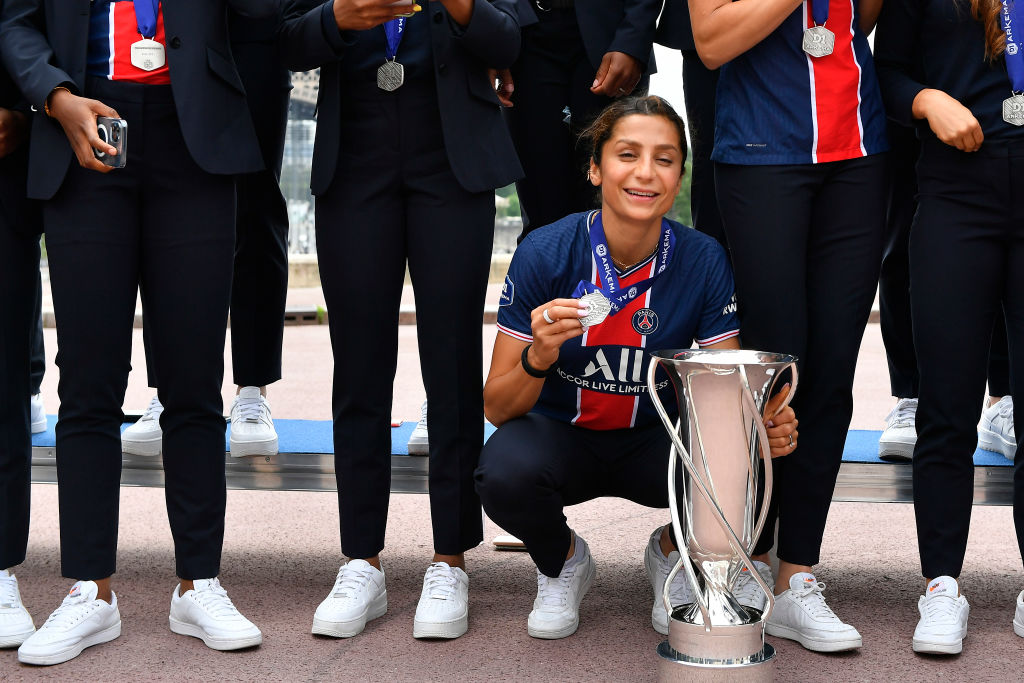
I suspect I’ll never be one to stick around in the same place for too long. I’d love to work in a hospital for a period, but getting out into the world and helping people who need it is the big dream. The work that Medecins Sans Frontieres (Doctors Without Borders) do, for instance, is amazing and that’s a path I’d like to explore. I’m fortunate enough to speak eight languages – Danish, English, German, French, Hindi, Urdu, Persian and Pashto – so that could prove a huge advantage if I do go down that route.
My life hasn’t been simple but I’ve been so lucky to do what I love. There are millions of people around the world, especially women, who don’t have the opportunity to take part in sport. I know from personal experience how it can be a power for good. Aside from becoming a doctor, I want to help level the playing field and give more people the same chances I enjoyed.
It won’t happen overnight. It’s about taking things one step at a time and making people believe that the world can change. Trust me, after the journey I’ve been on, I know it can – and we’re only just getting started.
- Ed McCambridgeStaff Writer
 Join The Club
Join The Club





